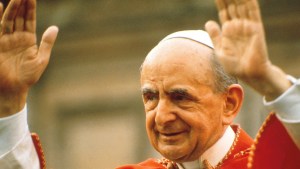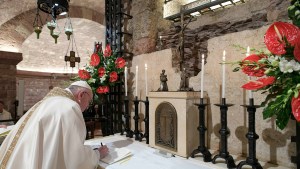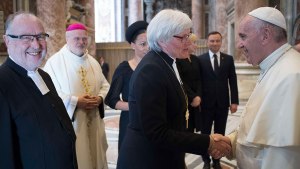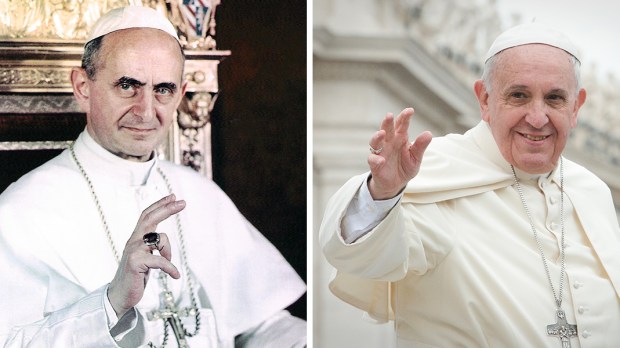Paul VI “was so convinced of the importance of dialogue that he wanted to dedicate an encyclical to it,” according to Archbishop Leonardo Sapienza, regent of the Pontifical Household, in an interview with the Sir news agency on November 7. The Prelate also noted how “Pope Francis repeats that Paul VI is his teacher.”
An expert on Paul VI and author of numerous works on the pontiff, Archbishop Sapienza has just published a book in Italian titled Paolo VI: Non esistono lontani, published on the occasion of the second anniversary of the canonization of the former Archbishop of Milan on October 14, 2018.
In this volume, unpublished texts by the Italian pontiff show that Paul VI was indeed a pope of dialogue.

Read more:
What Paul VI’s miracle for the unborn means for the Church
“For Montini, dialogue had almost become an obsession. He was so convinced of the importance of dialogue that he wanted to dedicate an encyclical to it,” said the monsignor.
For Paul VI, dialogue was never to become “a tactical trap,” the prelate said. On the contrary, “it was rather a matter of a sincere conversation, a loyal effort of understanding, of good will to reach an agreement. And an agreement is a meeting of hearts, without ambiguity and without compromise.”
Drawing a parallel with the attitude of Pope Francis, Archbishop Sapienza pointed out that for the Argentinean pontiff, Paul VI is a example to be followed. “[Pope Francis], going out to meet the man of today, does not hesitate to repeat that there is no such thing as people who are too far from us, and that it is necessary to demonstrate that God is not a thief of happiness or freedom,” he said.
In the end, “both Paul VI and Pope Francis encourage the Church and Christians to open their doors.”

Read more:
10 Things to know about the pope’s newest encyclical letter

Read more:
Pope Francis as he heads to Sweden: “To do something together is a lofty and effective form of dialogue.”

